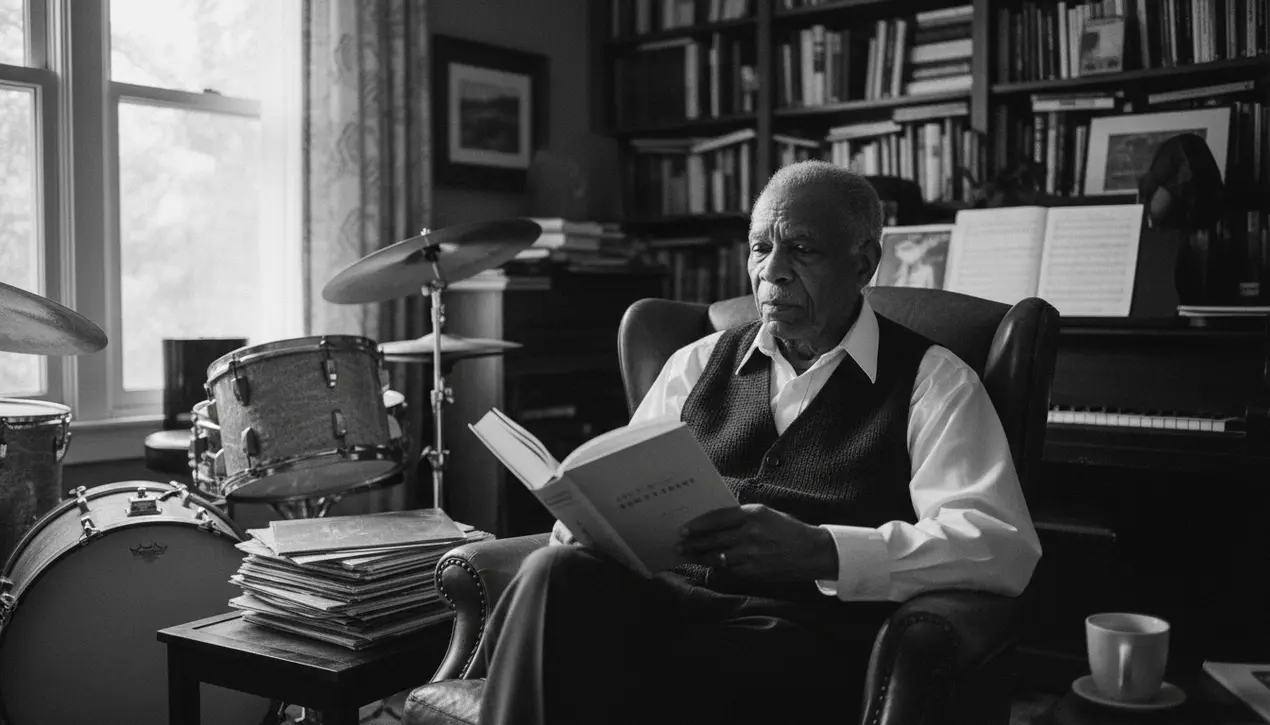
Entertainmentmusic
Billy Hart's Autobiography and Views on Jazz Music
BR
Brian Miller
3 hours ago7 min read1 comments
In the grand, improvisational symphony of American music, few drummers have navigated its complex rhythms with the grace, intellect, and sheer longevity of Billy Hart. His recently published autobiography, *Oceans Of Time*, is less a mere memoir and more a masterclass in perspective, a deep listening session with a man who has been at the kit for some of the most transformative moments in the art form's history.A central, resonant theme that Hart insists upon throughout the book is a deliberate and earned rejection of the term 'jazz,' a label he finds insufficient, perhaps even a misnomer for the profound creative expression he has dedicated his life to. Instead, he champions the phrase 'America's classical music,' a designation that carries the weight, complexity, and historical gravitas he believes the music deserves.And if anyone has the authority to make such a semantic shift, it is Hart himself—a living archive whose career spans the fiery soul of Otis Redding's band, the exploratory frontiers of Miles Davis's electric ensembles, the spiritual quests with Pharaoh Sanders, and the intricate dialogues with modern masters like Herbie Hancock and Wayne Shorter. His journey from the swing era through bebop, hard bop, fusion, and into the boundless creative space of contemporary improvisation is a map of the music's own evolution.To call it simply 'jazz' feels, in Hart's view, like calling a Shakespearean sonnet a 'poem'; it's technically correct but fails to capture the scale, discipline, and cultural significance. This isn't merely an academic quibble; it's a philosophical stance born from a life lived inside the music.Hart's perspective invites us to consider the cultural baggage the J-word carries—its origins in a segregated entertainment industry, its sometimes-limiting commercial expectations, and its failure to fully honor the intellectual and technical rigor required of its practitioners, a rigor he compares to that of a classical cellist or operatic soprano. His playing, whether with the ethereal quartet Quest or on his own acclaimed albums as a leader, has always embodied this classical sensibility: a deep respect for tradition coupled with a fearless drive to push the form forward, to find the new melody within the standard, the unexpected rhythm within the groove.Reading *Oceans Of Time* is like hearing Hart play a brush pattern on a snare—it’s subtle, nuanced, and contains multitudes. He doesn't just recount dates and sessions; he delves into the metaphysics of timekeeping, the spiritual connection between musicians in a ensemble, and the lifelong pursuit of what he might call 'the truth' in a solo.This reframing of the music as a classical tradition is part of a broader, ongoing conversation within the community, echoed by institutions like the Lincoln Center Jazz Orchestra and educators worldwide who are formalizing its pedagogy. Hart’s voice, seasoned and clear, adds a powerful, foundational bass line to that discussion. He has not only witnessed history; he has helped compose it, one brushstroke, one cymbal crash, one deeply considered beat at a time, compelling us all to listen more closely to what we call this magnificent, ever-evolving sound.
#Billy Hart
#autobiography
#jazz
#America's classical music
#Stereogum
#editorial picks news
Stay Informed. Act Smarter.
Get weekly highlights, major headlines, and expert insights — then put your knowledge to work in our live prediction markets.
Related News
Comments
Loading comments...
© 2025 Outpoll Service LTD. All rights reserved.